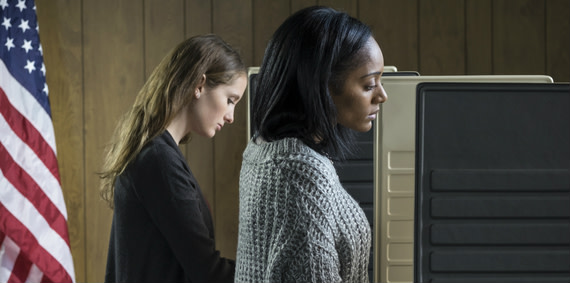6 Emotional Reasons Voters Vote As They Do!
by siteadmin

In the United States, people have been voting for over 200 years. In that time, a large range of emotional reasons have moved people to either vote or not vote. While it is true that a number of voters want to do what they believe to be best for America, there are other factors that can affect voter turnout. The remaining article will look at six emotional reasons that motivate votes in different ways.
Overconfidence: Sometimes it simply comes down to whether or not someone thinks their candidate will win (or perhaps lose). This often leads certain voters who support “the winning side” to feel assured and stay home on election day while those who support the underdog candidate might feel inspired enough to take off work and go out to cast their ballot for who they believe is the better candidate.
Perception of Fairness: Different voters have different perceptions about fairness in elections. Some look at the way the United States conducts its elections and feel that things are fair, while others might perceive it as unfair or biased in some ways. Generally speaking, if someone feels like they are being cheated out of their vote they will be less likely to go vote simply because they do not want to “waste” their vote on a system they view as corrupt. This can also lead other people who would otherwise go cast a ballot for their preferred candidate (or perhaps against an unfavourable one) to stay home and avoid further upset by feeling like their vote doesn’t matter either way.
Cognitive Dissonance: In psychology, cognitive dissonance is the mental stress or discomfort experienced by an individual who holds two or more contradictory beliefs, ideas, or values at the same time; performs an action that is contradictory to their beliefs, ideas, and values; or is confronted by new information that conflicts with existing beliefs, ideas, and values. This term was coined by Leon Festinger in his 1956 book When Prophecy Fails, which chronicled the followers of a UFO cult as reality clashed with their fervent belief in an impending apocalypse. People can often be faced with situations such as this during elections as they are forced to reconcile some sort of dilemma over whether or not they should vote for someone whose platform goes against their own ideas (or perhaps agree with them completely).
Disillusionment: After an election passes, some people might get the sense that their vote does not really matter. This can be true in some cases where a candidate wins by a landslide or another situation arises that completely changes the outcome of the election (for example, widespread voter fraud). On occasion, this kind of thing does happen and it usually leads to upset voters who were sure they had made “the right choice” only to find out they did not have much of an impact after all.
Perception of Urgency: Many government officials try to make voting as easy as possible for those who want to participate; however, sometimes it simply comes down to feeling like there is no urgency or necessity to. For instance, if everyone seems to be agreeing that Candidate A is clearly the best choice, perhaps some voters will feel like they don’t have to go vote because they know their voice will not really matter in the end anyway. Still, others might simply feel uninspired by the choices available and that may lead them to stay home on election day.
Disgust with Candidates or System: Sometimes people just do not want to vote for either candidate who is running in an election; they would rather abstain from voting entirely than cast a ballot for someone they believe in even the slightest bit or any of the candidates who are currently running. This can also come down to voter apathy where people simply do not care enough about an issue (or perhaps several) to invest time in learning about any of the candidates or their platforms.
Revenge: Sometimes people will choose not to vote because they are angry at some other decision that has been made or some type of behaviour exhibited by a politician or political party in general. For example, if there is some sort of scandal involving Candidate A’s campaign team before an election, it is possible for voters who are upset about this turn of events to abstain from voting for them during the next election cycle (or perhaps ever again). Beyond this, there could be any number of reasons why someone would decide to stay home on Election Day and avoid participating in what essentially amounts to a popularity contest with predetermined results.
Although many voters do participate in elections either by voting or running themselves; others might decide to abstain from voting altogether. While there are several reasons for this, common causes include feeling like their vote does not matter either way or that the candidates who are running do not represent them or share their beliefs. Sometimes people just want to boycott an election entirely because they disagree with how it is being carried out (too expensive, poorly organized, etc.)
In the United States, people have been voting for over 200 years. In that time, a large range of emotional reasons have moved people to either vote or not vote. While it is true that a number of voters want to do what they believe to be best for America, there are other factors that…
